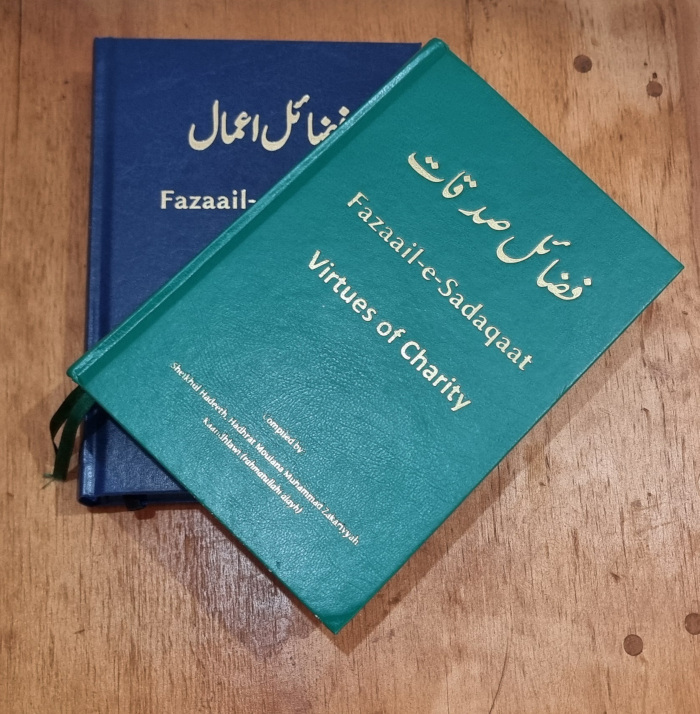
The Disastrous Outcome of Breaking Family Ties
Hazrat Abdullah bin Abi Awfaa (radhiyallahu ‘anhu) mentioned that once, in the evening on the day of Arafah, we (the Sahaabah [radhiyallahu ‘anhum]) were sitting around Rasulullah (sallallahu ‘alaihi wasallam) when he announced, “Any person in this gathering who has broken ties with any of his family should leave and not sit with us!”
Hearing this, only one man, who was sitting at a distance, got up and went way. However, a short while later, he returned and sat in the gathering once again.
Rasulullah (sallallahu ‘alaihi wasallam) asked him, “When I made the announcement, then only you woke up and left, and thereafter, you returned and sat with us again. What is the reason for this?”
The man replied that after hearing the order, he went straight to his aunt with whom his ties had been severed. On seeing him, she asked him how it was that he had come to her against his normal practice. He then explained to her what Rasulullah (sallallahu ‘alaihi wasallam) had mentioned, after which she made a dua of forgiveness for him, and he made a similar dua of forgiveness for her (and thus they both reconciled with each other, and thereafter, he returned to the gathering).
Rasulullah (sallallahu ‘alaihi wasallam) was greatly pleased with him, allowed him to re-join the gathering, and then said that Allah Ta‘ala does not grant His mercy to a community among whom there is someone who has broken away from his relations.
This Hadith has been quoted by Faqeeh Abu Laith (rahimahullah) who says that from this incident, we learn that damaging kinship is so grave a sin that even by sitting with a person guilty of such a sin, one is deprived of the mercy of Allah Ta‘ala. It is essential, therefore, that anyone who is involved in this sin must seek forgiveness from Allah Ta‘ala and build up his relationship with his kith and kin.
Rasulullah (sallallahu ‘alaihi wasallam) has said that there is no good deed the reward of which comes faster than being good to one’s kith and kin; and there is no sin worse than the breach of kinship and cruelty for which one will be punished in this world, over and above the punishment awaiting him in the Hereafter.
Several Ahaadith indicate that apart from the punishment in the Hereafter, the punishment for breach of kinship is experienced even in this life. As for those guilty of this sin being condemned to Jahannum, then this is evident from the following aayah:
وَ الَّذِیۡنَ یَنۡقُضُوۡنَ عَہۡدَ اللّٰہِ مِنۡۢ بَعۡدِ مِیۡثَاقِہٖ وَ یَقۡطَعُوۡنَ مَاۤ اَمَرَ اللّٰہُ بِہٖۤ اَنۡ یُّوۡصَلَ وَ یُفۡسِدُوۡنَ فِی الۡاَرۡضِ ۙ اُولٰٓئِکَ لَہُمُ اللَّعۡنَۃُ وَ لَہُمۡ سُوۡٓءُ الدَّارِ ﴿۲۵﴾
As for those who break their pledge with Allah after it has been made binding, and cut off the relationships Allah has commanded to be joined, and make mischief in the land, those are the ones for whom there is the curse, and for them there is the evil abode (of Jahannum). (Surah Ra’d v. 25)
Faqeeh Abu Laith (rahimahullah) has mentioned a strange story about a very pious and honest man from Khuraasaan who used to live in Makkah Mukarramah. People used to leave their property as a trust with him.
Once, a person left ten thousand gold coins as a trust with him and went away on a journey. When that person returned, the trustee had died, so the person made enquiries from the family of the deceased regarding the trust he had left, but no one knew anything about it.
As a large sum of money was involved, the owner became worried and concerned. He asked a gathering of Ulama in Makkah as to what he should do. They told him that the Khuraasaani was a very pious person who they felt would be among the inmates of Jannah. They then told him that he should visit the Zamzam well after one third or half the night had passed and call out the name of the trustee, asking him about his money.
The owner repeated the process for three nights consecutively, but received no reply. He went back to the Ulama and told them what had occurred. They were surprised and recited:
إنا لله وإنا إليه راجعون
They were afraid, lest he should not be in Jannah. So, they advised him to visit a certain place where he would find a valley by the name of Barhoot, and in it, a well. He should make a loud call at the well, calling out the name of the Khuraasaani.
He did so, and received a reply after the very first call, that his money was safe. Not trusting his children, the Khuraasaani said that he had buried it in such-and-such place inside the house, and that person should ask his son to show him that place, where he should dig his money out. The man did so and got back his wealth.
However, in surprise, he also asked the deceased how he was in such a place in spite of being a pious person. The deceased told him that he had some relatives in Khuraasaan with whom he had severed ties, and he had died without reconciling with them, and hence this action had become the cause of his punishment.
(Fazaa’il-e-Sadaqaat [English] pg. 215-216, [Urdu] pg. 254-256)
 Ihyaaud Deen An Effort to Revive Deen in Totality
Ihyaaud Deen An Effort to Revive Deen in Totality



